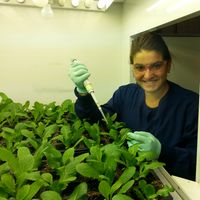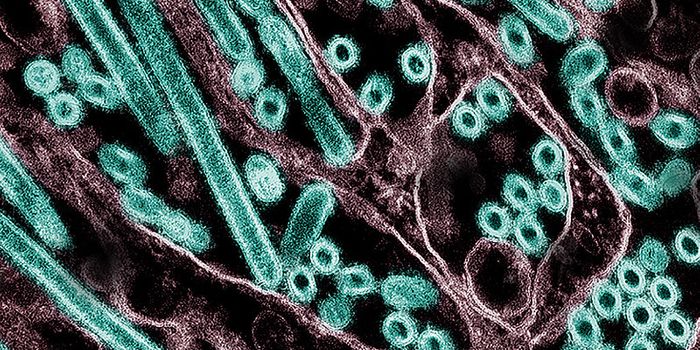Host Defense Factors Boost Efficacy of Antibiotics against Salmonella Infection
Salmonella is one of the most common causes of bacterial foodborne illness worldwide. It is estimated that there are approximately 90,000 deaths attributed to nontyphoidal globally. In the United States alone, there are an estimated 1.2 million cases and 450 deaths attributed to nontyphoidal Salmonella infections.
In this study the antibiotics tested demonstrated a synergistic effect with human defense peptide LL-37 toward the killing of Salmonella. Credit: Food Poisoning News
Salmonella meningitis can occur in immunocompromised adults and young children. Although uncommon in developed countries, it is recognized as an emerging threat in areas of low socioeconomic status. Because of the rarity of the disease, specific pharmacologic therapies for treatment of Salmonella meningitis are not well defined.
Scientists from the University of California San Diego School of Medicine and School of Pharmacy sought to determine the effects of various antibiotics traditionally used to treat Salmonella meningitis infections as well as the potential selection of antibiotic resistance in the presence of endogenous immune factors during a nontyphoidal Salmonella meningitis infection.
The antibiotics ceftriaxone, ciprofloxacin, and azithromycin demonstrated a synergistic effect toward the killing of Salmonella in the presence of the human cathelicidin defense peptide LL-37. This defense peptide is a critical component in the immune response toward a meningeal infection.
Sub-therapeutic concentrations of azithromycin were also shown to enhance the bactericidal effect of the innate immune system. Chloramphenicol did not demonstrate enhanced immune system killing and therefore, is not recommended for treatment of Salmonella meningitis.
The results of this study demonstrate the limitations of evaluating the efficacy of antibiotics in vitro. Future studies should look at improving these types of assays to better predict the clinical efficacy and activity of antibiotics in vivo.
Sources: mSphere









